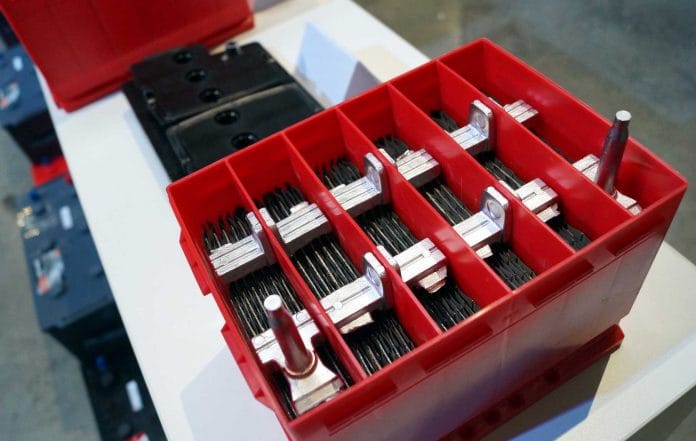New Delhi: A new study has found that if formal lead-acid battery (LAB) recyclers are subsidised and taxed less, it could lead to a reduction in lead pollution in India. Lead-acid batteries are rechargeable batteries found commonly in automobiles, among other devices.
The study, conducted by researchers from IIT Madras and IIT Kanpur, is based on a modelling study of how regulated and unregulated recyclers of lead-acid batteries interact in the market, and what economic interventions could ensure less lead pollution, a serious problem that causes lead poisoning in humans and environmental degradation.
The recycling of lead is predominantly undertaken by the informal sector, where environmental norms are loosely followed, researchers say. Subsidising formal recyclers and reducing their tax could thus result in wider market regularisation, having an impact on how closely environmental laws are followed.
“Decreasing tax on regulated recyclers, providing subsidy to regulated recyclers can shift the recycling business from unregulated to the regulated sector and result in reduced lead excretion,” says the research paper, published in the journal Resources, Conservation & Recycling.
In a statement, Dr R. K. Amit, professor, Department of Management Studies, at IIT Madras, said, “The insufficiency of primary lead sources to satisfy the demand makes the recycling of used batteries necessary. However, the unscientific way of recycling by the unregulated sector poses serious environmental and health threats due to the high amount of lead excretion. We studied to quantitatively assess the impact of different policy instruments on shifting the recycling business from unorganized to the organized sector in India.”
What the model says
Retailers sell and collect formal, branded batteries as well as generic, unbranded batteries, which customers buy based on their own preferences. Spent batteries, once collected back by the retailer, are then sold to either regulated recyclers or unregulated recyclers, depending on the prices they fetch.
“The choice of retailers is influenced by the payment they receive from the recyclers for used LAB. As the unregulated sector currently provides higher prices, offers higher purchase frequency leading to lower storage costs, and due to tax elimination, the retailers prefer selling used batteries to the unregulated sector,” says the paper.
The researchers sought to study the effect of three policies: introducing subsidies to regulated recyclers, reducing tax on regulated recyclers, and providing subsidies to for formal batteries.
The model has been created to reflect the “dynamic behavior of the real world,” using a variety of tools, including stocks and flows, variables, feedback loops, time delays, and “multiple interactions resulting in non-linearities.”
To see that it aligns with the real world, the model is validated and results derived “under different policy settings.”
The model predicted that the most effective measure to reduce lead pollution is to provide subsidies to regulated recyclers.
“Providing subsidy will inject direct money into the regulated system for purchasing spent batteries by the regulated sector. This will allow the recyclers to pay more to the retailer for spent batteries. As the retailer receives more payment per battery, the unregulated recycling market share decreases,” says the paper.
While reducing tax is also effective, the model finds that “the change in lead excretion level is not significant with the change in the tax level.”
Subsidising formal batteries, on the other hand, is “not recommended” because it is found to increase the unregulated recyclers’ market share over time.
More field study-based papers to be published
The researchers acknowledge, in their conclusion, that such policies can affect livelihoods in the informal sector, and “Providing training and employment for the informal sector workers in the formal sector can be a way to mitigate this issue wherein the formal sector can leverage the expertise and experience of the informal sector workers in reaching out to the collection points and managing the recovery process.”
Asked about the absence of field or ethnographic research to the study, Dr B. Vipin, Assistant Professor, Department of Industrial & Management Engineering, IIT Kanpur and one of the lead researchers, said more papers featuring more field-based research would be released in the future.
“Our model is built after extensive discussions with “Battery and Recycling Foundation International” which has enormous experience in lead-acid battery recycling in India. We have acknowledged their contribution in the paper. In addition, one of the researchers had field visits prior to conceptualizing the model,” he told ThePrint in a written statement.
“Furthermore, we validated our model with the real world. Our research on battery recycling is expanding and we will publish more field study-based papers,” he added.
Also read: Indian Railways net-zero emissions aim could help meet 5% of Paris Agreement goals, report says






